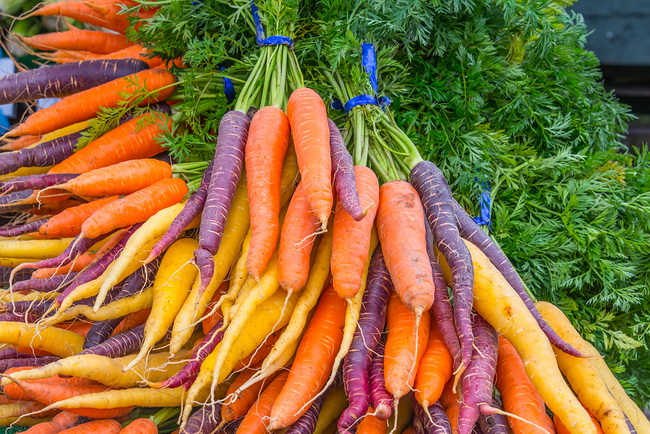- Make It Yourself Lavender Heart-Shaped Bath Bombs!
- 20 Things You Never Knew About “Down There”
- 12 Best Foods For Those Suffering From Arthritis Pain
- 12 Personal Hygiene Mistakes Almost Everyone Makes (Mom Never Told You About #4!)
- 15 Medicinal Plants And Herbs From The Cherokee People
- 12 Mind-Blowing Benefits Of Drinking Coconut Water During Pregnancy
- 12 Outstanding Winter Foods That Won’t Fatten You Up Like A Christmas Turkey
The “Roots” Of Good Health

Photo credit: bigstock.com
2. Carrot
You may have heard as a kid that eating carrots helps you see in the dark. This is not just some old wives’ tale: carrots are very rich in an antioxidant called beta-carotene. Your body converts beta-carotene into vitamin A, which is essential for maintaining healthy eyesight. It is for this reason that night blindness, or total inability to see in the dark, is a symptom of extreme vitamin A deficiency.
Carrots are also a good source of vitamins C and K, as well as potassium, fiber and manganese. It also offers a fair amount of B vitamins as well.
There is also some evidence suggesting that raw carrots can reduce your risk of cancer. According to a study published in the Journal of Agricultural and Food Chemistry, rats that were fed carrots were one-third less likely to develop tumors. This is believed to be due to the presence of falcarinol, a chemical in carrots which protects them against fungal infection. A different group of rats fed standard rat feed supplemented with falcarinol experienced similar results. More research needs to be done, but these results are certainly promising for those looking to reduce their risk of cancer.
3. Turmeric
Turmeric is a root which has gained a lot of popularity in recent years, and with good reason. Research has found that turmeric has significant anti-inflammatory properties, and can even reduce the risk of cancer. This is believed to be due to a compound in turmeric called curcumin, which is responsible for giving the interior of the root its reddish-orange color. Studies showed that it was able to help kill some cancer cells and increase the effectiveness of chemotherapy. Another compound in turmeric called ar-turmerone may also protect the brain from neurodegenerative conditions like Alzheimer’s disease.
According to a study published in the Journal of Applied Physiology, regularly drinking beet juice can improve stamina during cardiovascular exercise. Researchers found that the nitrates contained in beets play a role in improving vascularity and promoting more efficient use of oxygen by the body. Similar studies found that participants who drank beet juice were able to lower their blood pressure.
READ ALSO: A Watercress Salad May Be The Key To Good Health
With more and more evidence being discovered, it has become clear that this special class of vegetables is at the root (har, har) of a healthy diet. Pick some up today.
References:




























